Three Strikes Against the Dollar
Three Strikes Against the Dollar
by James Turk
The markets are winding down for the year-end holidays, and as a consequence, little consideration or attention is being paid to three events, each of which adds another nail to the dollar's coffin.
1) Iran and euros
Though it has been given scant coverage in the US, Iran's decision to drop the dollar in favor of the euro has been receiving widespread attention in Europe. As reported by Agence France-Presse on Monday, Iranian government spokesman Gholam Hossein Elham told news reporters: "The [Iranian] government has ordered the central bank to replace the dollar with the euro…in commercial transactions," repeating exactly what Saddam Hussein did in September 2000. Lest there be any misunderstanding, Elham went on to say: "Foreign income sources and oil revenues will be calculated in euros, and we will receive them in euros in order to put an end to our dependence on the dollar."
This change will lessen the demand for dollars, which will cause the value of the dollar to drop. Strike one.
2) US Ban on melting and export of coin
The US Mint implemented a new regulation that bans the melting down and exporting of pennies and nickels. It is sound economics to harvest the metallic value of these coins, because the value of their base metal content is greater than the coin's face value. Here's what Lee Rogers, editor of the Funny Money Report, says about it. His analysis is spot-on:
"They [i.e., US Mint officials] claim that they are imposing these rules because they don't want certain individuals who melt down coins taking advantage of the American tax payer. It isn't the people who are melting down the pennies and nickels that are taking advantage of the American tax payer. Those people are just trying to protect themselves from the stupidity of the Federal Reserve that continues to destroy our currency. The Federal Reserve is the very reason why the melt value of these coins has risen beyond their face value. Federal Reserve Notes have lost over half of its value in terms of gold and silver since 2000 because they have dramatically increased the money supply over this period of time. The Federal Reserve has taken advantage of the American tax payer, not the people who are melting down these coins. It is complete rubbish that the U.S. Mint would make scapegoats out of individuals who melt their coins to be the ones who are screwing over American taxpayers. The press release should be blaming Alan Greenspan for taking advantage of American taxpayers because he was responsible for creating the excessive amount of credit that has since decreased the value of the currency.
What is going on with pennies and nickels is an exact repeat of what took place in the late 1960's. Back then the U.S. Mint made melting silver coins illegal. At that point in time the melt value of silver coins became worth more than their face value. As a result, these coins began to disappear from circulation because people realized what was happening and kept them. Why would people use a coin to pay for something if the face value of it is worth less than the melt value? That's why the coins stopped circulating. I believe that the same exact thing is going to happen to the currently circulating forms of pennies and nickels."
The entire article in the Funny Money Report is worth reading. It also includes the press release by the US Mint announcing their new regulation.
http://www.funnymoneyreport.com/article_view.php?id=20
There are many lessons that we can garner from monetary history, but one of them is unmistakable. When debasement becomes so extreme that even the base metal content of circulating coins is greater than the coin's face value, that country's currency is headed for the currency graveyard and will soon be buried there. Strike two.
3) Increasing government control
There is a corollary to the lesson from monetary history explained above. When a government interferes with commerce by imposing restrictions, commerce suffers. These restrictions impede economic activity, and that is a bad outcome because it is economic activity that is the backbone of society as each of us strives to meet our needs and wants.
There is perhaps no better account of this principle than the one penned in 1912 by Andrew Dickson White in his classic book, Fiat Money Inflation in France, which describes the horrific monetary debasement the French people suffered prior to Napoleon. He explains the adverse consequences that are caused by government controls and how successive controls by the French government inflicted increasing damage to that country's economy. White's book is essential reading for everyone, and can be downloaded for free at the following link:
http://www.gutenberg.org/etext/6949
We have this week seen the principles expounded by White at work. The Thai government announced the implementation of foreign exchange controls, and one immediate response was the stock market there dropped 15%. Untold and unknown at this early stage is how severe the repercussions will be on that country's capital flows, both domestically and in its relations with the rest of the world.
Lest you think the actions taken by the Thai government are an isolated event that could not happen in Europe or the US, I suggest you read the following article published 3 weeks ago in the online version of London's Daily Telegraph:
http://www.telegraph.co.uk/money/main.jhtml?xml=/money/2006/11/27/ccview27.xml
While acknowledging that "currency controls" would be the "nuclear option", the article says that "Brussels may lawfully freeze capital flows in and out of the EU, and within it, and that this could be done by a "qualified majority" of EU finance ministers." It goes on to say that this authority is already in place in Europe and was granted "to enable Europe to stem the rise of the euro if the dollar goes into free fall, the underlying argument being that Washington should not be allowed [to] export the consequences of its own reckless spending policies through a "beggar-thy-neighbour" devaluation. The idea was to stop money coming in, though it could equally be used to stop money leaving." The really interesting question is why would the EU want to stop money from leaving?
Simple. If capital controls are imposed, they would come with compliance from other countries, particularly the US and Japan, which would impose controls complementary to those implemented in Europe. In other words, though the above quote implies that the EU would pursue its own interests, the reality is that these countries' central banks are joined at the hip. Therefore, it is likely that the US and the EU (with Japan as well) would pursue a common agenda. Namely, they would drop the value of their fiat currencies more or less in concert so that they all end up losing purchasing power against gold and other tangible assets, but more importantly, these currencies would drop in unison against the Chinese yuan. In this way the yuan's exchange rate would rise, in theory bringing down its trade surplus and also reducing the investment money flowing into China. It seems probable that the EU may justify taking this dire step toward capital controls on the spurious grounds that they need to prevent their monetary union from unraveling. So strike 3 is against the US dollar, euro and Japanese yen.
In summary, the outlook for the US dollar is worsening, which is a conclusion that can also be reached by looking at what happened during last week's trip to China by Treasury secretary Paulson and Fed chairman Bernanke. They came home empty handed, without any concessions from the Chinese or commitments by them to help the US by continuing to hold dollars, which the US is recklessly spewing throughout the world as a consequence of its ongoing trade deficits.
Labels: James Turk















![[Most Recent Quotes from www.kitco.com] [Most Recent Quotes from www.kitco.com]](http://www.kitco.com/images/live/t24_au_en_usoz_6.gif)
![[Most Recent Quotes from www.kitco.com] [Most Recent Quotes from www.kitco.com]](http://www.kitco.com/images/live/au_go_0030_ny.gif)
![[Most Recent Quotes from www.kitco.com] [Most Recent Quotes from www.kitco.com]](http://www.kitco.com/images/live/au_go_0365_ny.gif)
![[Most Recent Quotes from www.kitco.com] [Most Recent Quotes from www.kitco.com]](http://kitconet.com/charts/metals/silver/t24_ag_en_usoz_4.gif)




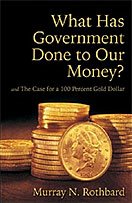

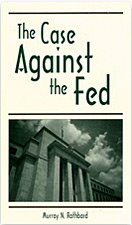

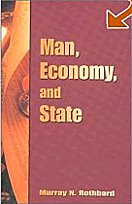

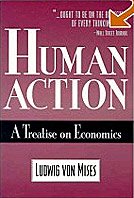
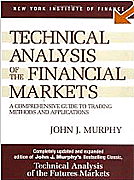





0 ΣΧΟΛΙΑ (COMMENTS):
Post a Comment
<< Home